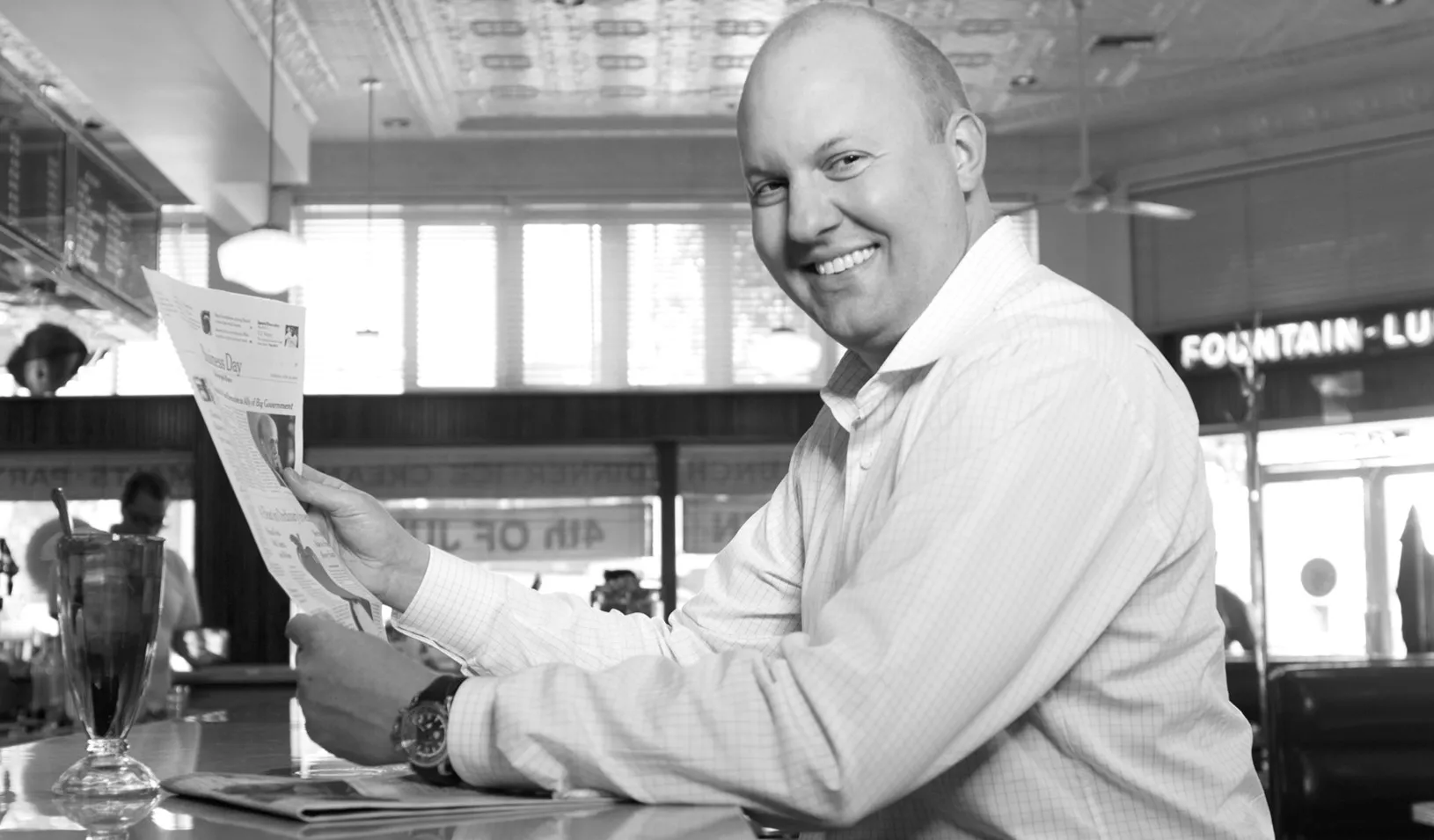Marc Andreessen: “We Are Biased Toward People Who Never Give Up.”
The venture capitalist discusses Silicon Valley’s changing tech landscape and why failure is overrated.
June 23, 2014
Marc Andreessen | Corbis Outline photo by Robyn Twomey
When Facebook bought a fledgling company called WhatsApp for $19 billion earlier this year, many analysts warned that Silicon Valley was in the midst of a bubble, not unlike the one that burst in the spring of 2000. Companies are wildly overvalued, they fretted, and the boom is going to end soon. Marc Andreessen, co-inventor of the world’s first commercial browser and co-founder of a leading venture capital firm, disagrees. Addressing Stanford Graduate School of Business students at a “View From The Top” talk in March, he said that far from being at risk of a bubble, the tech industry is, by some measures, “still in a bust.”
Besides detailing what makes a company more bubble-proof, Andreessen, who also co-founded Netscape, discussed what Silicon Valley’s new management style means for today’s MBAs, the entrepreneurial DNA, and why he thinks the “failure fetish” is nonsense.
Seek companies that have real products, real markets and real customers.
At the height of the bubble in the ’90s, Silicon Valley tech companies “were building products that weren’t very good, and they were on a bomb run to go public as quickly as possible. The engineers who worked for them hated it because the companies were so sales driven. You’d hear catch phrases like ‘Build big or go home,’ or my favorite: ‘Forget details, do deals,’” he says. As a result, those companies vaporized.
Now some of the companies people point to as being overvalued have billions of dollars of revenue; Facebook, for example, went from zero to $10 billion in revenue in fewer than 10 years. The market for tech products, notably apps, has expanded exponentially; WhatsApp alone has 450 million active users. “You could take a position that a large-scale Internet service with a billion users isn’t going to be worth anything, but I wouldn’t recommend it,” Andreessen says.
At the same time, many large tech companies sport low multiples and high cash balances, hardly characteristics of bubble-era operations, he adds.
Management styles have changed; the right fit matters.
In the ’90s, venture capitalists quickly pushed aside founders of tech startups and replaced them with professional managers. But those management pros tended to put too much emphasis on sales and marketing, and not enough on engineering and product development. That single-minded focus on growth at all costs was another factor that led to the dot-com bust, says Andreessen. The pendulum has swung the other way, maybe even too far. “Now we take for granted the tech-genius founder as CEO; Mark Zuckerberg is the apotheosis. But we’ve lost the art of building a business, and in particular we’ve lost the art of sales and marketing.”
Two management models in Silicon Valley are working well, Andreessen says. An example of the first one is at Facebook where Mark Zuckerberg is the CEO and Sheryl Sandberg is the Chief Operations Officer. “Everyone wants a Sheryl, the high-powered business person with deep capabilities in sales, marketing and operations. They want that person as a No. 2 — COO or president,” he says.
The second is the Bill Campbell/Scott Cook partnership; a model that works well when companies don’t have a founder capable or interested in being the CEO. (Cook is the founder and former CEO of Intuit; Campbell is chairman, but also has filled the roll of CEO). Campbell, is not a technologist, but is highly skilled at operating a business, has great respect for engineers, and most importantly, is not threatened by them, says Andreessen.
The latter model is one that MBA students should consider as they build their careers, advises Andreessen. “If you’re going to be in the tech industry, the key question is, ‘What is the partnership you are going to have with the technical visionary?’ If you can crack that code, there is an enormous opportunity to make one plus one equal three.”
The odds of winning the tech startup game are still long.
There are about 4,000 tech startups each year that attempt to raise venture money, but his firm, Andreessen Horowitz, funds only about 20. The venture capital industry as a whole funds about 200 tech startups a year, but as few as 15 will generate approximately 95 percent of the returns.
Do you have the qualities of an entrepreneur?
“We are biased towards people who never give up, who never quit; and that’s something you can’t find on a resume. We look for courage, and we look for genius. There’s all this talk about how important failure is. I call it the failure fetish. ‘Failure is wonderful, it teaches you so much, it is great to fail a lot,’ they say. But we think failure sucks. Success is wonderful.”
Breakthrough ideas seem crazy — at first.
You don’t have to look hard to find wildly successful products and companies that initially seemed crazy. Thirty years ago, the idea that people would have a computer in their home seemed bizarre; just a few years ago the concept that people would share their homes and their cars with strangers (think Airbnb and Uber) to make money seemed crazy. “The real breakthrough ideas seem really nuts the first time you see them,” Andreessen says “And the fact that they seem nuts can be a positive signal because that can explain why that thing isn’t being done by any existing company.”
For media inquiries, visit the Newsroom.
Explore More

Fail It ’til You Nail It: Masterclass on Embracing the Upside of Down

Making Great Strategy: A Masterclass with Jesper Sørensen



